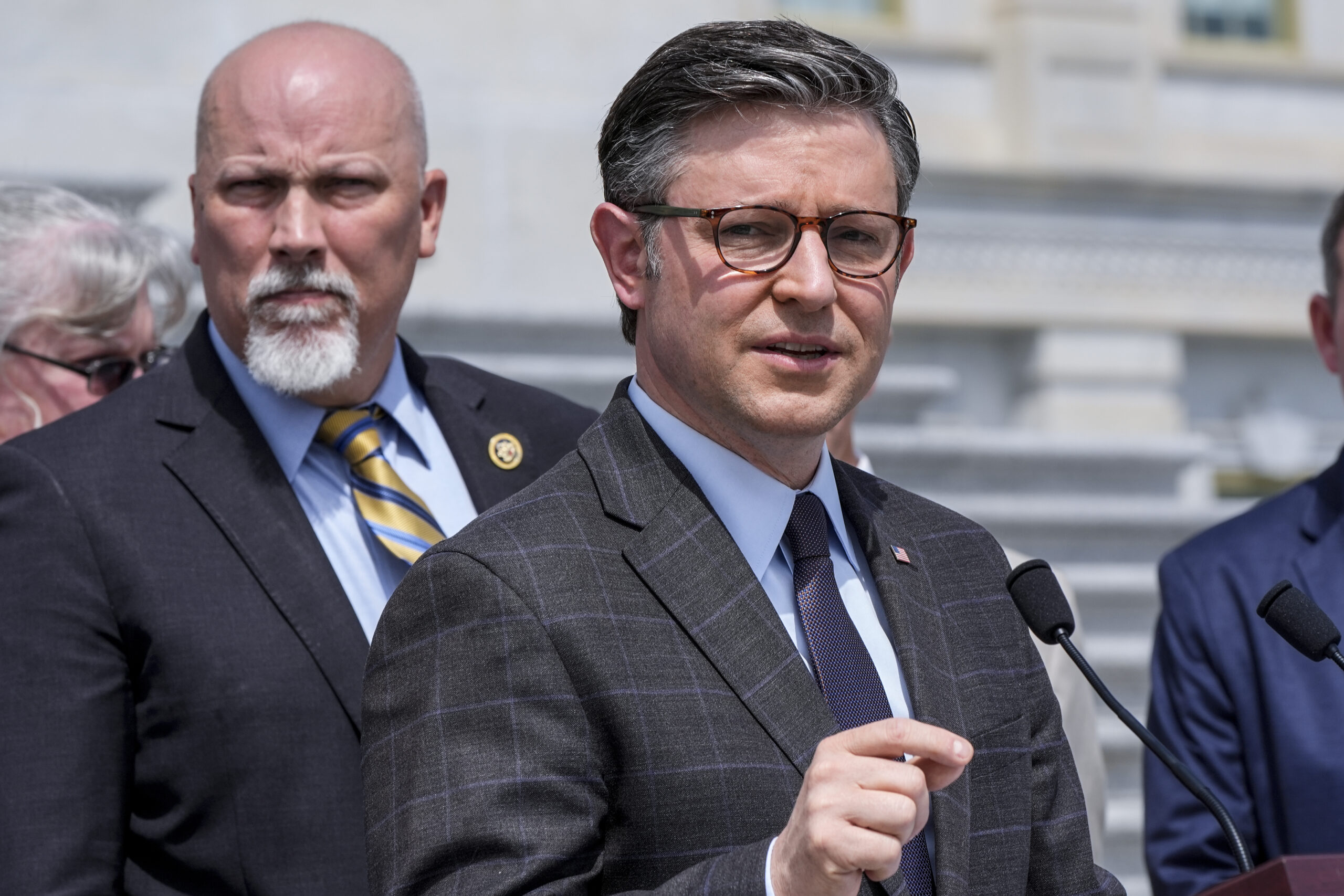

House Republicans are teeing up a number of pro-law enforcement bills to hit the floor during National Police Week, looking to hammer home their law-and-order platform ahead of the 2024 election.
Lawmakers will vote on a slew of police-related legislation over the coming days, including bills to increase protections for law enforcement officers as well as resolutions denouncing the Biden administration over what Republicans consider to be “soft-on-crime” policies. The law enforcement bills will also include a number of provisions seeking to crack down on the rise of illegal immigration at the southern border, which has become a hot-button topic on Capitol Hill.
Here’s a breakdown of some of the top pieces of legislation coming to the floor this week:
Deport illegal immigrants who assault police officers
One of the top bills lawmakers will vote on this week is a proposal to require that illegal immigrants who are arrested for assaulting law enforcement officers are “quickly arrested and detained” by Immigration and Customs Enforcement until they are deported from the United States.
The Detain and Deport Illegal Aliens Who Assault Cops Act, introduced by Rep. Jeff Van Drew (R-NJ), comes in response to an attack on two New York Police Department officers by a group of immigrants just outside a shelter near Times Square earlier this year. Republicans have seized on that incident, as well as others, to blame the Biden administration’s border policies for causing a rise in crime across the country.
“Until President Biden and Secretary Mayorkas enforce existing laws and secure our borders, these types of bills are necessary to protect our nation and its citizens,” Van Drew posted on X.
The House passed a similar bill last year during Police Week that would make it a deportable offense to attack police officers but failed to gain much traction in the Democratic-led Senate. Van Drew’s bill could see the same fate as some Democrats have previously raised concerns the bill could be used to justify unwarranted deportations.
Lawmakers will also vote on a semi-related resolution being introduced by Rep. Clay Higgins (R-LA), which could condemn President Joe Biden’s border policies and call on the Biden administration to “support the law enforcement officers defending our homeland.”
Require report on how Biden’s border policies affect law enforcement
Another bill under consideration would compel Attorney General Merrick Garland to conduct a report on how the surge of illegal immigration at the southern border is affecting law enforcement officials at the federal, state, and local levels.
The bill, which was first reported by the Washington Examiner last month, would require Garland to submit a report to Congress detailing the effects the border crisis has had on law enforcement. Under the legislation, Garland would be required to include specific information in his report, including the estimated cost of all resources used to address the influx of illegal immigrants coming into the country as well as “the extent to which such resources are not available to law enforcement agencies.”
“Thanks to the open border policies of President Biden and Secretary Mayorkas, law enforcement agencies across the country are being overwhelmed by the millions of migrants and large quantities of dangerous narcotics like fentanyl flowing into the United States,” said Rep. Anthony D’Esposito (R-NY), a retired detective with the New York Police Department who introduced the bill.
The report must also include information on how much exposure law enforcement officers have to fentanyl while encountering illegal immigrants crossing the southern border, as well as any injuries sustained while in the line of duty. The bill would also require a section that details the morale of law enforcement officers.
Lawmakers will also vote on a similar bill proposed by Rep. Dan Bishop (R-NC) that would require Garland to compile reports on violent acts against law enforcement officers as well as the effectiveness of programs meant to protect police officers through wellness programs and protective equipment.
Expand concealed carry for qualified law enforcement officers
Lawmakers are set to consider whether to expand concealed carry rights to qualified active or retired law enforcement officers in areas that are currently restricted under federal law.
The LEOSA Reform Act of 2024, introduced by Rep. Don Bacon (R-NE), would allow qualified officers to carry concealed firearms in areas such as school zones, national parks, federal facilities open to the public, and state, local, or private property open to the public. The bill would expand those abilities to off-duty and retired law enforcement officers so long as they are deemed qualified.
Bacon previously proposed changes to the Law Enforcement Officer Safety Act, or LEOSA, last year but it was not brought to the House floor for a vote.
Override DC power to implement stricter law enforcement policies
Another bill under consideration would allow Congress to exert its oversight power over the D.C. Council to block local legislation pertaining to public safety and what Republicans consider to be “soft-on-crime” sentencing.
Rep. Byron Donalds (R-FL) introduced the DC CRIMES Act of 2024 that would give Congress the authority to override certain public safety laws in response to rising crime rates in the district. The bill comes as crime in Washington was up by 30% last year, with the number of Metropolitan Police Department officers dwindling, according to GOP lawmakers.
CLICK HERE TO READ MORE FROM THE WASHINGTON EXAMINER
Under the Home Rule Act, Washington is permitted to operate as an independent city government. The only caveat is that all laws are subject to congressional approval before being enacted, occasionally setting up showdowns between Congress and local lawmakers.
House Republicans previously used this power last year to overturn the city’s overhaul of its criminal code that would eliminate most mandatory minimum sentences, establish jury trials for nearly all misdemeanor cases, and reduce the maximum penalties for crimes such as carjackings or robberies. That effort was successful in both the House and Senate and was later signed by President Joe Biden.





